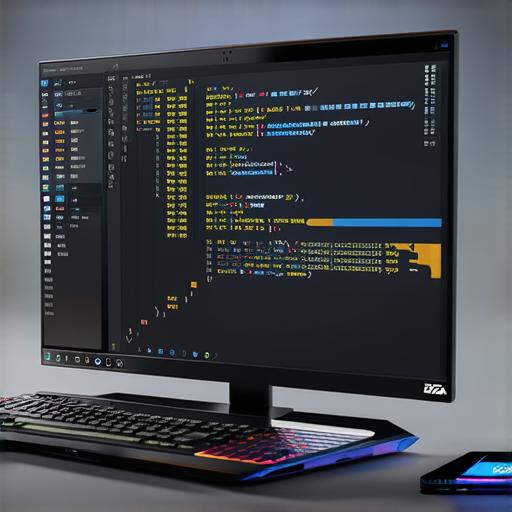
Creating Your First Game with Unity 3D
Are you a newbie unity developer looking to create your first game using Unity 3D? Do you want to know how to create engaging and interactive games with Unity’s powerful tools and features? Look no further! In this article, we will take you through the step-by-step process of creating a basic game using Unity 3D.
Step 1: Define the Concept and Mechanics of Your Game
Before you start building your game, it’s important to have a clear idea of what you want it to be about. What kind of game are you trying to create? Is it a 2D platformer, a 3D shooter, or something else entirely? Once you have a concept in mind, think about the mechanics that will make your game fun and engaging. Do you want players to solve puzzles, fight enemies, or collect items? Defining these details upfront will help you stay focused and ensure that your game stays on track.
Step 2: Create Your Game Assets
Once you have a concept and mechanics in mind, it’s time to start creating the assets that will make up your game. This might include characters, environments, weapons, or other objects. Unity has a wide range of tools for creating 3D models, textures, and animations, so take some time to explore these features and find the ones that work best for your project. You can also use pre-made assets from the Unity Asset Store if you don’t have the time or resources to create everything yourself.
Step 3: Set Up Your Game Scene
With your assets created, it’s time to set them up in a scene. This involves arranging objects in space, adding lighting and materials, and setting up camera movements. Unity has a powerful scene editor that makes it easy to manipulate objects and create complex scenes. Take some time to experiment with different layouts and configurations until you have a scene that feels right for your game.
Step 4: Write Your Game Logic
Now that your assets are set up in the scene, it’s time to add the code that will make your game come alive. This might include scripting for character movement, AI behavior, or other game mechanics. Unity supports a variety of programming languages, including C and JavaScript, so choose the one that works best for you. There are also plenty of online resources and tutorials available to help you learn how to write game logic in Unity.
Step 5: Test and Iterate
With your game logic written, it’s time to test your game and see if everything is working as expected. This might involve playing through the game yourself, or recruiting beta testers to provide feedback. Based on this feedback, you may need to make changes to your game assets, scene layout, or scripting to improve the overall experience. It’s important to be flexible and open to feedback in the development process, as it will ultimately lead to a better final product.
Step 6: Publish Your Game

Once you are happy with your game, it’s time to publish it! This might involve submitting it to the App Store or Google Play, or hosting it on your own website. There are plenty of resources available online to help you understand the various options for publishing and distributing your game.
FAQs:
Q: What software do I need to create a game using Unity?
You will need the Unity engine software, which can be downloaded for free from the Unity website. You may also need additional tools, such as 3D modeling software or text editors, depending on your specific needs.
Q: How long does it take to create a basic game using Unity?
The amount of time it takes to create a basic game using Unity will depend on the complexity of the game and the experience level of the developer. It can take anywhere from a few weeks to several months to complete a basic game.
Q: Can I make money from my Unity games?
Yes, you can monetize your Unity games by selling them through the App Store or Google Play, or by hosting them on your own website and charging for access. There are also other ways to monetize games, such as in-app purchases or advertising.
Conclusion:
Creating a basic game using Unity 3D can be a rewarding and fun experience for unity developers of all skill levels.

